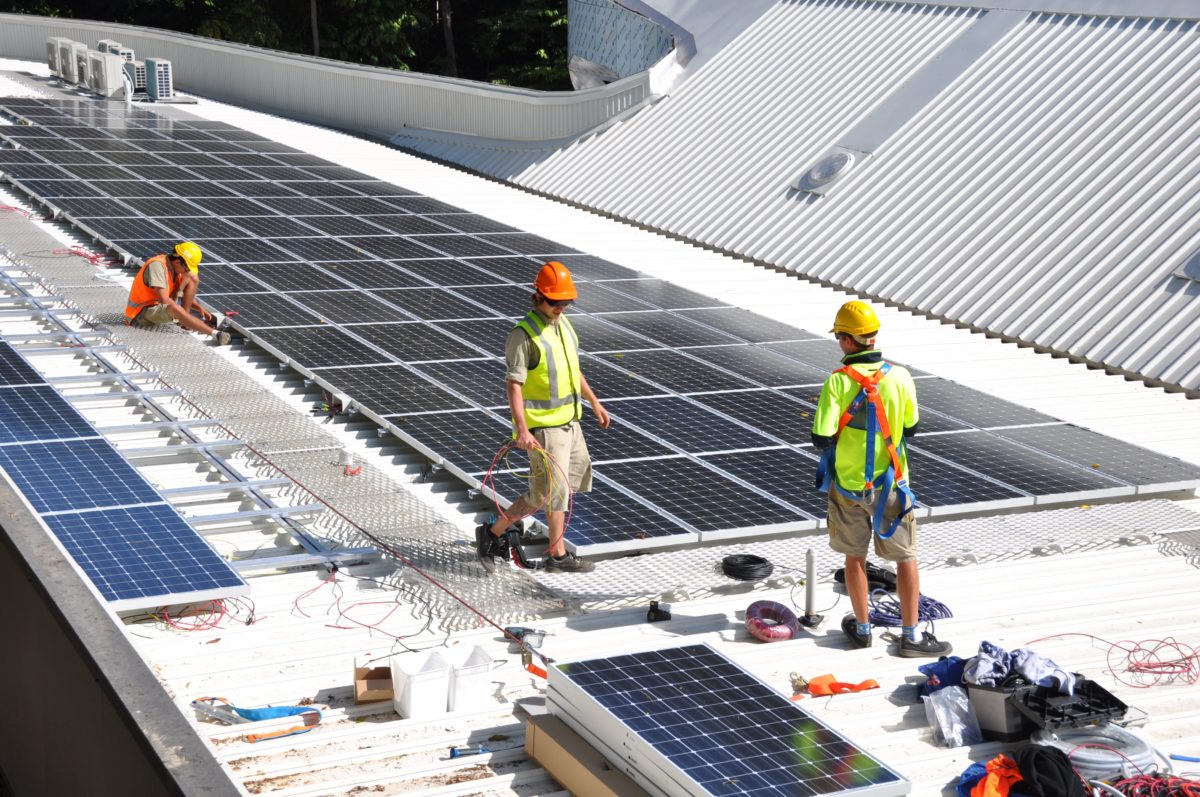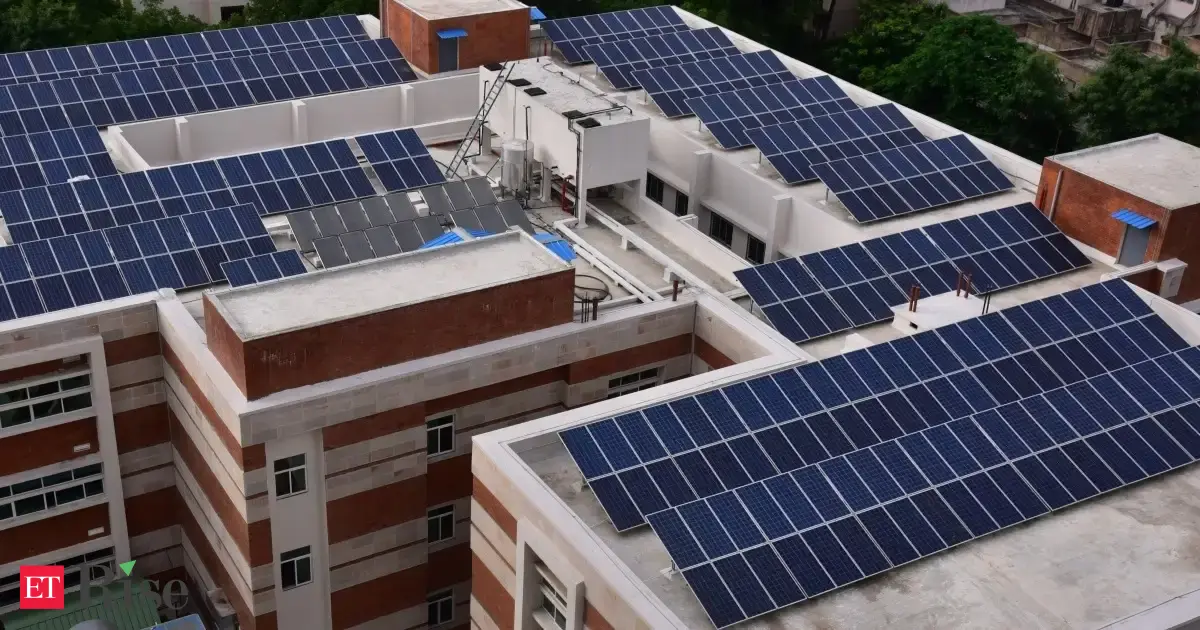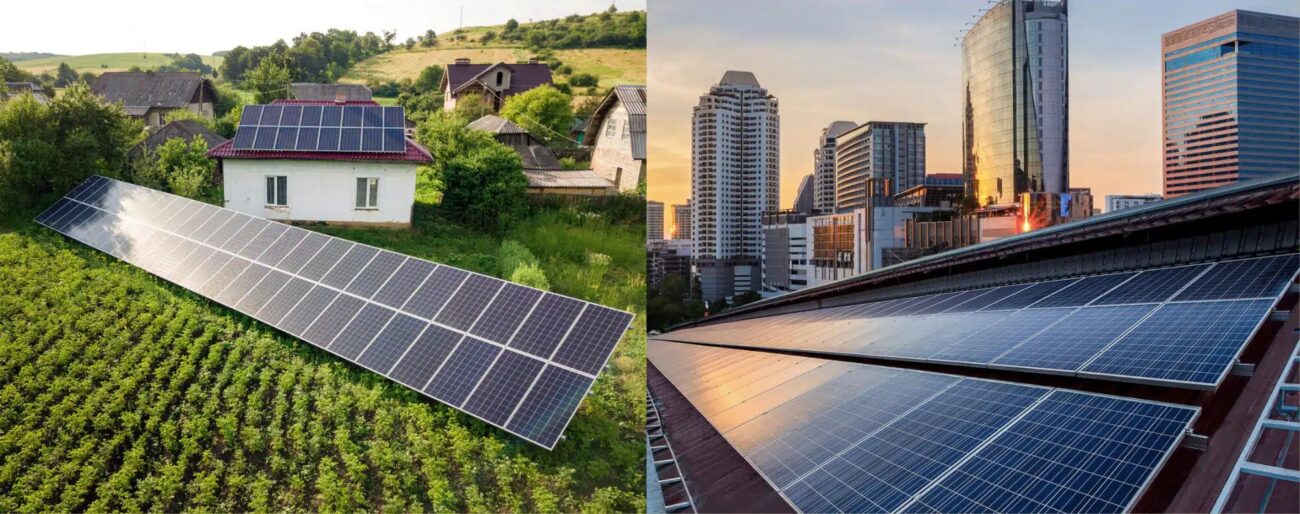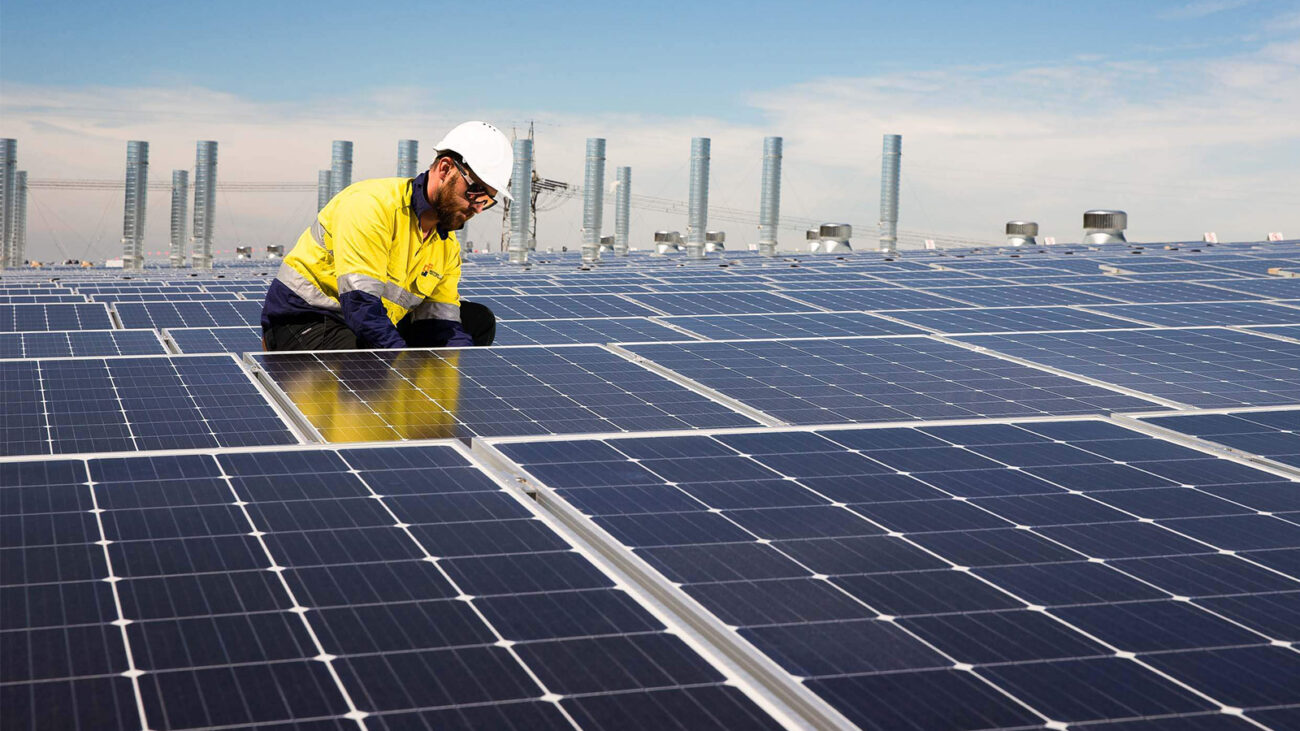Understanding the distinctions between residential and commercial solar installation in dubai is crucial for making informed decisions about renewable energy investments. While both systems harness the same solar technology, they differ significantly in scale, complexity, regulations, and financial considerations that affect project planning and implementation.
Dubai’s thriving solar installation market accommodates both residential homeowners seeking energy independence and commercial enterprises pursuing sustainability goals, each with unique requirements and opportunities under DEWA’s Shams Dubai program.
Scale and System Size Differences
The most apparent difference between residential and commercial solar installation lies in their scale and capacity requirements. Residential systems typically range from 3kW to 15kW, designed to meet household energy consumption patterns and fit within available rooftop space constraints.
Commercial installations start where residential systems end, often ranging from 50kW to several megawatts depending on business energy requirements and available roof area. These larger systems require extensive planning and coordination to optimize energy production while meeting complex building requirements.
System sizing for residential projects focuses on offsetting home electricity consumption, while commercial systems must accommodate diverse operational needs including HVAC systems, lighting, equipment, and future expansion considerations.
Technical Complexity and Design Requirements
Equipment Specifications and Standards
Residential solar installation systems utilise standardised equipment designed for home applications, including string inverters or power optimizers that simplify installation and maintenance while meeting household energy needs effectively.
Commercial solar installation in dubai projects require industrial-grade equipment including central inverters, sophisticated monitoring systems, and advanced safety equipment that can handle higher voltages and complex electrical integration requirements.
Commercial installations must comply with additional safety standards including fire suppression integration, emergency shutdown systems, and worker safety protocols that residential installations typically don’t require.
Electrical Integration Complexity
Residential solar installation systems integrate with home electrical panels and standard utility meters, creating straightforward connections that trained technicians can install efficiently within established timelines.
Commercial systems require complex integration with building management systems, three-phase electrical infrastructure, and sophisticated load management capabilities that coordinate solar production with operational demands.
Professional engineering analysis becomes essential for commercial projects to ensure proper electrical design, load calculations, and integration with existing building systems without disrupting business operations.

Regulatory and Approval Differences
DEWA Application Requirements
Residential applications through DEWA’s Shams Dubai program involve streamlined documentation including property ownership verification, electrical drawings, and standard equipment specifications that facilitate rapid approval processing.
Commercial projects require extensive documentation including structural engineering reports, fire safety plans, electrical load studies, and detailed drawings that undergo comprehensive review by multiple DEWA departments.
The approval timeline for residential systems typically ranges from 2-6 weeks, while commercial projects can require 3-6 months depending on project complexity and documentation completeness.
Municipal and Building Code Compliance
Residential solar installations must comply with standard building codes and safety requirements that are well-established and consistently applied across Dubai’s residential developments.
Commercial solar installations face additional requirements including fire department approvals, structural certifications, and coordination with building management systems that create more complex regulatory landscapes.
Professional contractors specializing in commercial projects understand these regulatory complexities and manage approval processes while ensuring compliance with all applicable codes and standards.
Financial Investment and Return Analysis
Initial Investment Requirements
Residential solar investments typically range from AED 15,000-50,000 for complete systems, making them accessible to individual homeowners through cash purchase, solar loans, or financing programs.
Commercial projects require substantially larger investments ranging from AED 100,000 to several million dirhams depending on system size and complexity, often requiring sophisticated financing structures and longer-term planning.
The economies of scale in commercial installations result in lower per-watt costs compared to residential systems, though the absolute investment amounts are significantly higher.
Return on Investment Calculations
Residential systems typically achieve payback periods of 4-7 years through electricity bill savings, after which they generate positive cash flow throughout their 25+ year operational lifespans.
Commercial installations often achieve faster payback periods of 3-5 years due to higher electricity consumption rates and larger system scales that maximize net metering benefits under DEWA’s program.
Tax implications for commercial installations may provide additional financial benefits through depreciation schedules and business expense deductions that residential customers cannot access.
Installation Process and Timeline Variations
Project Management Complexity
Residential installations typically require 1-3 days for physical installation by small teams working efficiently on straightforward rooftop configurations with minimal disruption to household activities.
Solar system installation in dubai for commercial projects involves complex project management including crew coordination, equipment staging, safety protocols, and business continuity planning that extends installation timelines.
Commercial installations may require weekend or evening work to minimize business disruption, adding complexity to project scheduling and potentially increasing installation costs.
Equipment and Logistics Management
Residential solar installation projects use standardized equipment that can be delivered and installed efficiently with minimal storage requirements and straightforward logistics coordination.
Commercial projects require substantial equipment quantities, specialized lifting equipment, and coordinated delivery schedules that accommodate large-scale installations without disrupting business operations.
Professional project management becomes essential for commercial solar installations to coordinate multiple trades, ensure safety compliance, and maintain project timelines while minimizing operational disruption.
Maintenance and Service Requirements
Residential systems require minimal maintenance beyond periodic cleaning and annual inspections, with monitoring systems providing homeowners with performance data through user-friendly smartphone applications.
Commercial installations need comprehensive maintenance programs including regular cleaning, electrical inspections, performance optimization, and coordination with building management systems to ensure optimal operation.
Companies like Yanvi Solar provide specialized commercial maintenance services that understand business operational requirements and provide proactive service to prevent disruptions to commercial activities.
Performance Monitoring and Optimization
Residential monitoring focuses on energy production tracking and basic system health indicators that help homeowners understand their solar investment performance and identify maintenance needs.
Commercial systems require sophisticated monitoring including demand management, load forecasting, and integration with building automation systems that optimize energy utilization and operational efficiency.
Professional monitoring services for commercial installations provide detailed analytics, performance optimization recommendations, and proactive maintenance scheduling that maximizes system performance and return on investment.
Financing and Ownership Structures
Residential Financing Options
Homeowners typically choose between cash purchase, solar loans, or Power Purchase Agreements (PPAs) that provide flexible financing options suited to individual financial situations and preferences.
Residential financing focuses on simplicity and accessibility, with standardized loan products and straightforward ownership structures that make solar adoption accessible to diverse homeowners.
Home equity loans and solar-specific financing products offer attractive terms for residential customers while preserving equipment ownership and tax benefits associated with solar investments.
Commercial Financing Complexity
Commercial solar projects utilize sophisticated financing structures including operating leases, capital leases, PPAs, and direct ownership models that optimize tax benefits and cash flow management.
Business financing considerations include depreciation schedules, tax credit optimization, and integration with corporate sustainability goals that affect financing structure selection and project economics.
Professional financial analysis helps businesses select optimal financing structures while maximizing tax benefits and ensuring positive cash flow from solar investments.
Future Expansion and Scalability
Residential Growth Planning
Residential systems can be designed with expansion capabilities to accommodate future energy needs including electric vehicle charging, home additions, or lifestyle changes that increase electricity consumption.
Modular residential designs allow capacity additions when roof space and electrical infrastructure permit, providing flexibility for homeowners to enhance their solar investments over time.
Battery storage integration provides residential customers with energy independence options while creating opportunities for advanced energy management and backup power capabilities.
Commercial Scalability Opportunities
Commercial installations offer extensive scalability opportunities including additional building phases, parking lot installations, and integration with corporate sustainability initiatives across multiple locations.
Business expansion planning can coordinate solar development with facility growth, ensuring renewable energy capabilities keep pace with operational requirements and corporate environmental goals.
Companies like Yanvi Solar work with businesses to develop comprehensive renewable energy strategies that support long-term growth while maximizing environmental and financial benefits.
Conclusion
Understanding the differences between residential and commercial solar rooftop installation in dubai helps property owners select appropriate systems that meet their specific needs, budgets, and performance expectations while maximizing investment returns.
Both residential and commercial solar installations offer substantial benefits including cost savings, environmental impact reduction, and energy independence that support Dubai’s Clean Energy Strategy 2050 goals.
Professional consultation with experienced providers ensures optimal system design and installation quality regardless of project scale, delivering long-term satisfaction and performance that justifies solar investments in Dubai’s renewable energy future.






